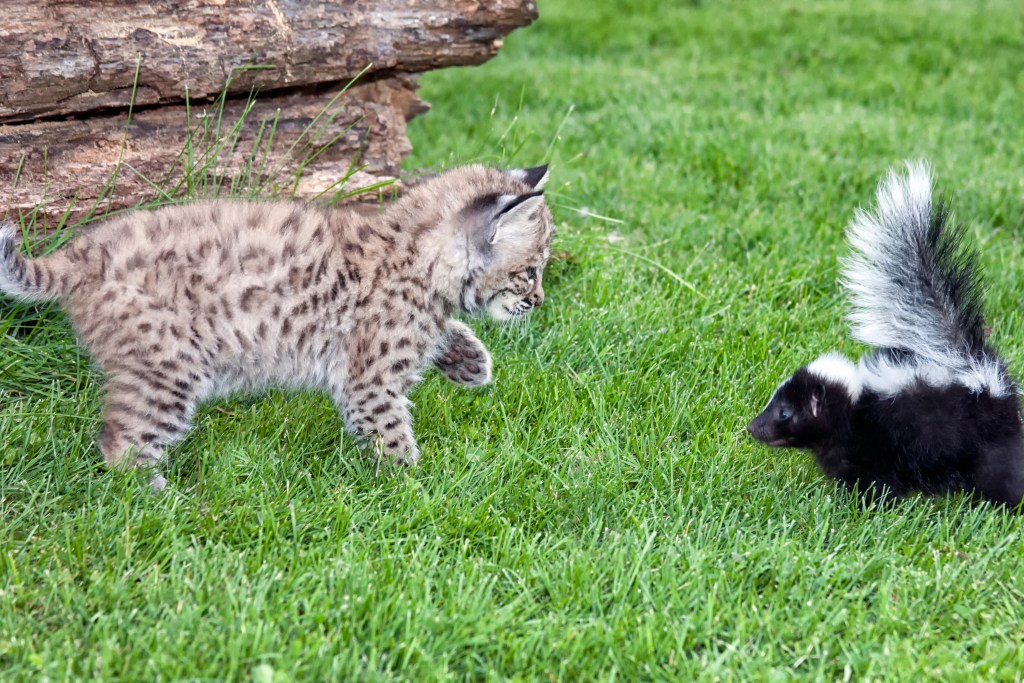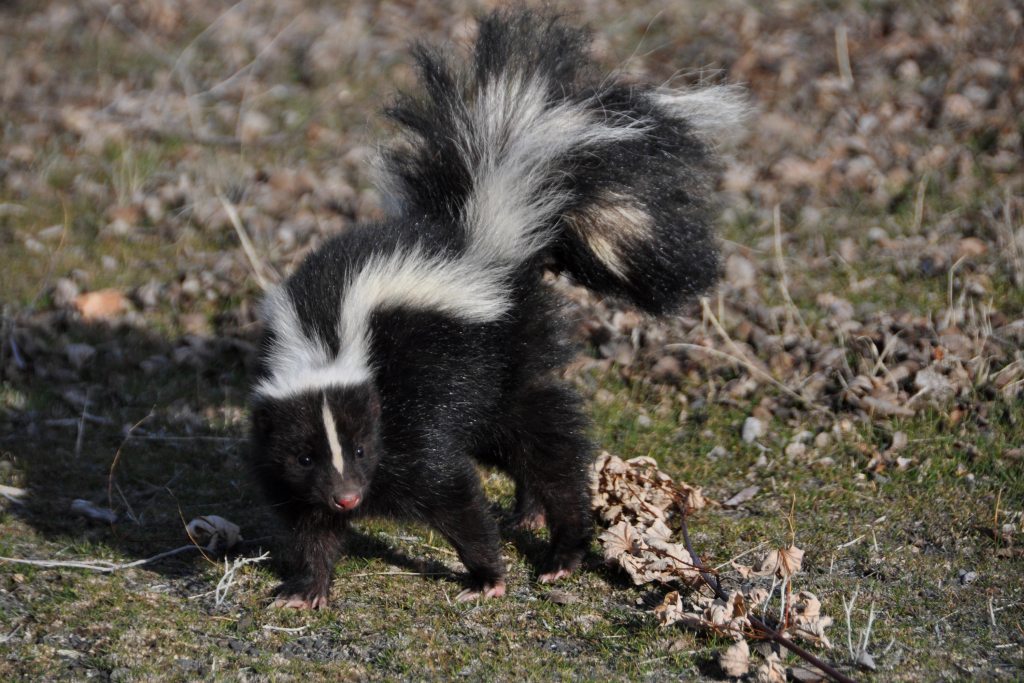
It’s basically every pet owner’s worst nightmare. You might hear a rustle, and then suddenly, there’s the smell — possibly the most terrible one you’ve ever encountered. Worst of all, your cat will take an even bigger whiff since he's the target of the attack (and he has a very strong nose to boot).
Unfortunately, getting sprayed by a skunk can do more than just stink up the house, and in the worst-case scenario, you may even need to seek out the vet. To minimize the damage to your animal, home, and the olfactory system, you want to take care of this pungent disaster immediately. But don’t worry! There’s a lot you can do from your home to solve the problem quickly and easy.

Why do skunks spray?
Just as your cat scratches in self-defense, skunks spray to ward off their enemies — with your cat (or dog) near the top of that list. In fact, these stinkers don’t have many other repelling mechanisms, being small and not terribly fast. So they stick to the heinous smell, which is supposed to teach the potential predator never to approach the little black and white stink-bomb again.
The spray itself is a liquid that he can control through a couple of anal glands. Unfortunately for you and your pets, that means his aim is pretty good and that he will likely nail your curious little pet head on.

How do I take care of my cat and myself?
As long as you follow a few simple steps, you should succeed in ridding everything of the offending stink, though getting there won’t be the most pleasant process.
Step 1: Sequester your animal.
As soon as you can get your kitty away from the stinky little detonator, take him to a room far from other people and pets. You don’t want the fresh spritz to wind up covering the dog or your favorite blanket. The bathroom where you keep his litter works well (since that’s a safe space to him).
Step 2: Wipe his face.
The spray can really irritate his face and might require a vet visit if he’s constantly messing with his nose or has red and watery eyes. You can wash them out with eyewash to start then monitor his behavior.
Step 3: Make your cleanser.
There are professional products available for you to buy, and if skunk spraying becomes a regular occurrence, we do recommend that you keep some on hand. But feel free to just whip up this recipe if you ever need it. Mix hydrogen peroxide with baking soda, and throw in a little dish soap if you need the extra oomph. That should do the trick.
Step 4: Rub him down.
Skip his head and use your cleaner on the rest of his body (don't forget the paws and tail). Be careful around his private parts as you don't want the mixture to sting any sensitive areas. You can follow this with a standard bath and then lots of treats — this is a lot for your little guy to go through.
Step 5: Check for bites.
While skunks rely on their powerful musk to ward off carnivores, they aren’t against sinking their teeth in. Skunks can carry diseases, such as rabies, or cause infections with their bite, so if you see any broken skin, be sure to take your kitty to the veterinarian as soon as you can.
Step 6: Wash your stuff.
Before you get started, turn on the fan and open a window to ventilate the space. Then wipe down floors and counters that your pet may have rubbed on. Lastly, put your own clothes alone in the machine with a little baking soda thrown in. Use an air freshener if the smell lingers in the house.
Step 7: Get a checkup.
Usually, your feline will completely recover without complications. However, make sure he’s not rubbing his face too much in the following days, which might indicate that his skin is still irritated and he needs a little extra TLC.
While no one wants their tiny creature to end up in an altercation with a skunk, it does happen from time to time — but this doesn’t have to be the end of the world. With the right products on hand and a little elbow grease, you’ll have both of you back to top shape in no time. If kitty gets sprayed a lot, you can look into skunk repellent — though use it sparingly, as skunks need a safe place too. Hopefully, your cat will take the lesson to heart and learn to leave the smelly guys alone.



